Many people wonder about the use of basil seeds and how they compare to chia seeds.
I will address these questions below.
Let’s divide it into three parts:
Health benefits, culinary uses, and comparison to Chia seeds.
Basil Seeds
Share this article
Table of Contents
Health Benefits
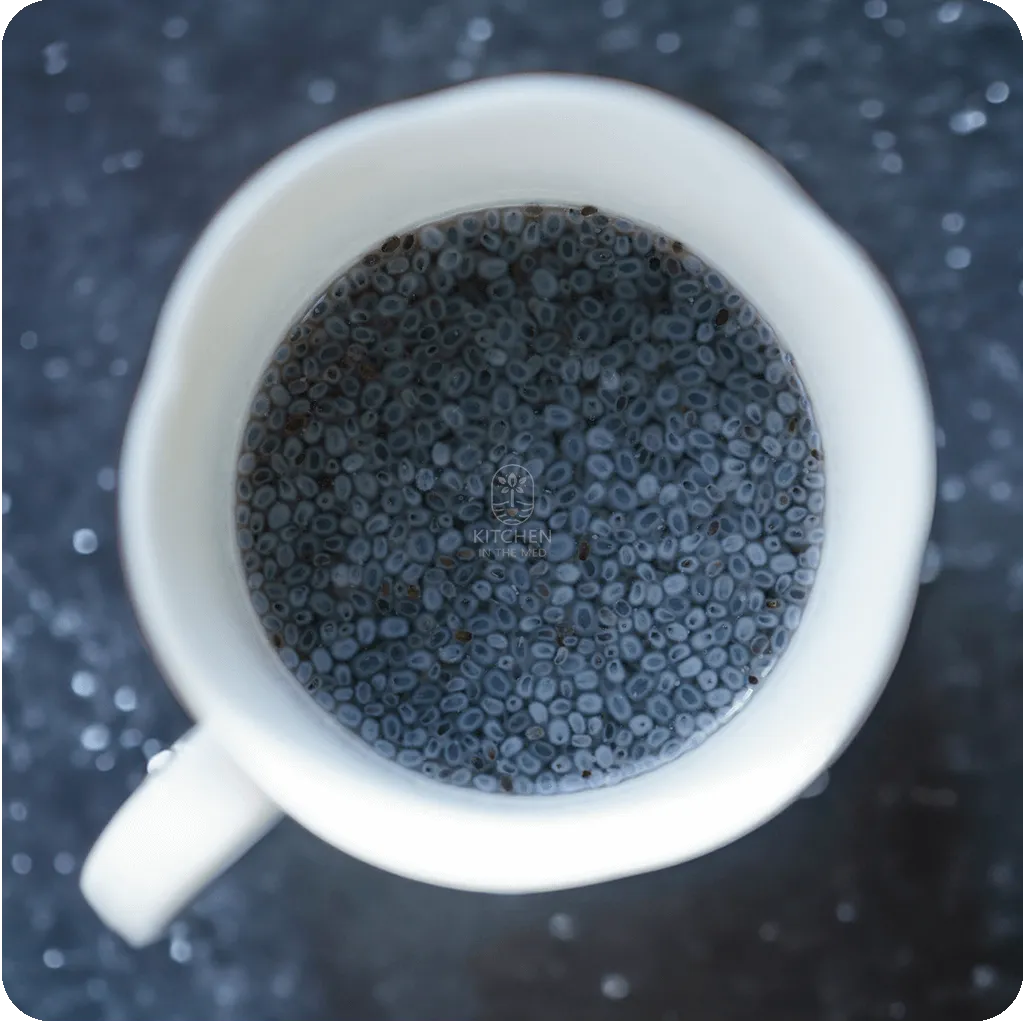
Basil seeds
You might have seen “Sabja seeds” or “Tukmaria”.
These are different Indian names for basil seeds, but they are all the same seed.
I consulted professional sources to provide you with a list of health benefits (sources at the end of the article)
These tiny seeds are rich in fiber, essential minerals, and bioactive compounds, making them useful in various diets.
Nutritional Profile
They are high in fiber, which helps digestion and heightens satiety.
Basil seeds will also provide essential minerals like magnesium, calcium, and iron, which support bone strength and metabolic functions. They also contain bioactive compounds with antioxidant properties.
Health Benefits
- Digestive Health: The high fiber aids bowel regularity and overall digestive function.
- Weight Management: These seeds expand when soaked in water and form a gel-like substance. This can make you feel full and help you control your weight.
- Blood Sugar Regulation: Some studies suggest that basil seeds may help moderate blood sugar levels, which is beneficial for individuals managing diabetes.
Precautions
- Allergic Reactions: People with allergies to basil or other members of the Lamiaceae family should exercise caution.
- Choking Hazard: Because basil seeds can expand, it’s advisable to soak them before consumption to prevent choking.
- Medication Interactions: If you are on blood-thinning medication, consult a professional healthcare provider before incorporating basil seeds into your diet, as they contain vitamin K, which can affect blood clotting.
Culinary Uses
Some people traditionally use basil seeds in beverages and desserts, and drinks like smoothies and sherbets. They are neutral in flavor, so you can add them to smoothies, yogurts, and baked goods without altering the taste profile.
After you soak them, they become gelatinous and expand. This process will make your drinks “thicker,” and you will feel more satiated or full.
These are some ways you can use basil seeds in cooking:
-
Beverages: Add them to drinks like lemonade or iced tea.
-
Smoothies and Shakes: Basil seeds enhance thickness and provide a subtle crunch.
-
Desserts: They work well with puddings, ice creams, or yogurt-based desserts. They can serve as a natural thickening agent.
-
Salads: Sprinkle the soaked basil seeds over fruit or vegetable salads.
-
Baked Goods: Mix basil seeds into bread or muffin and cake batters.
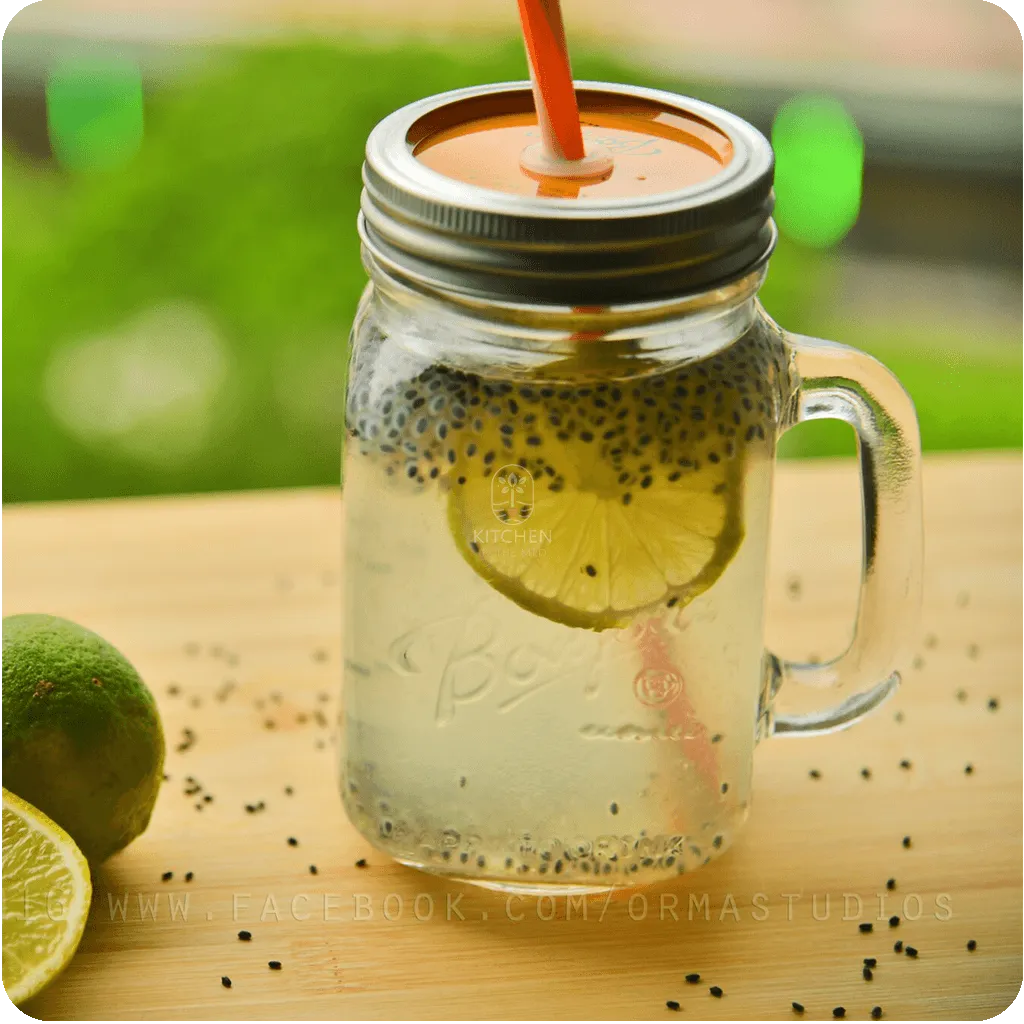
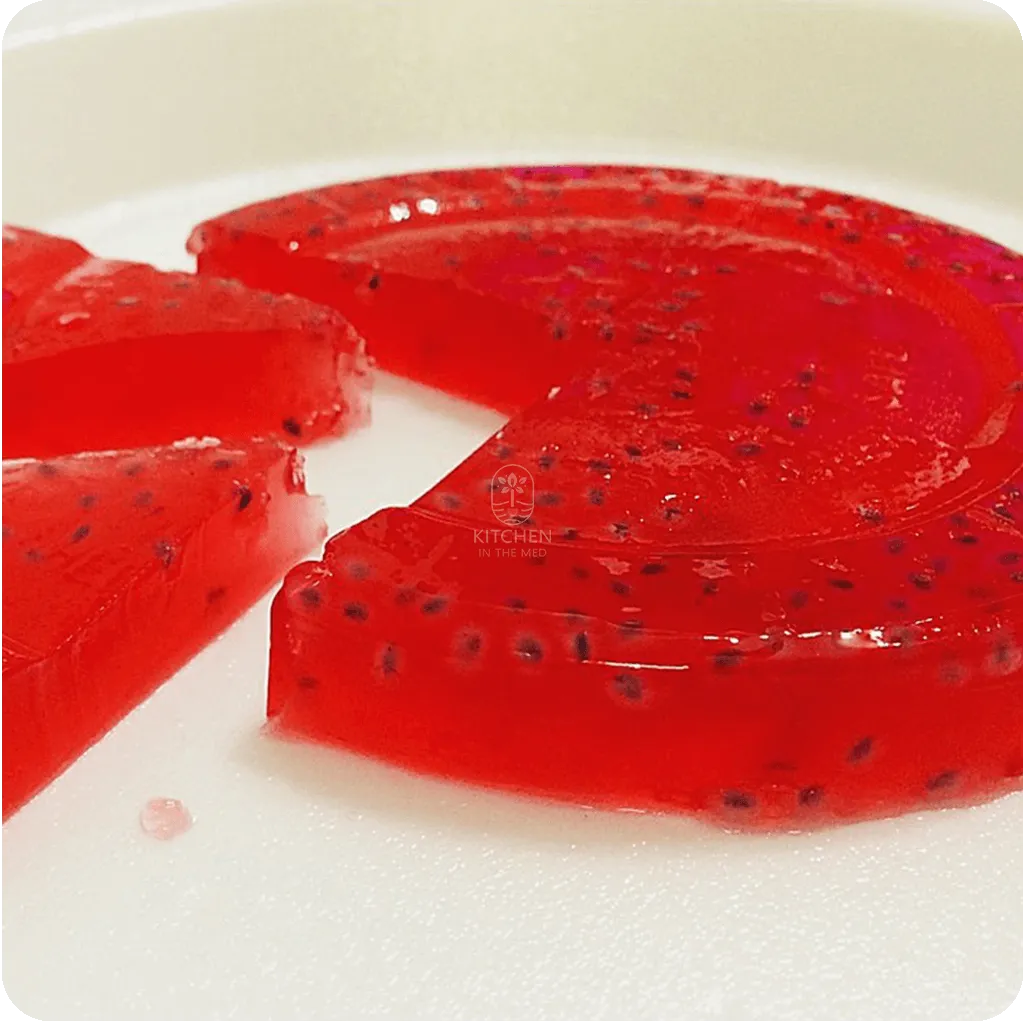
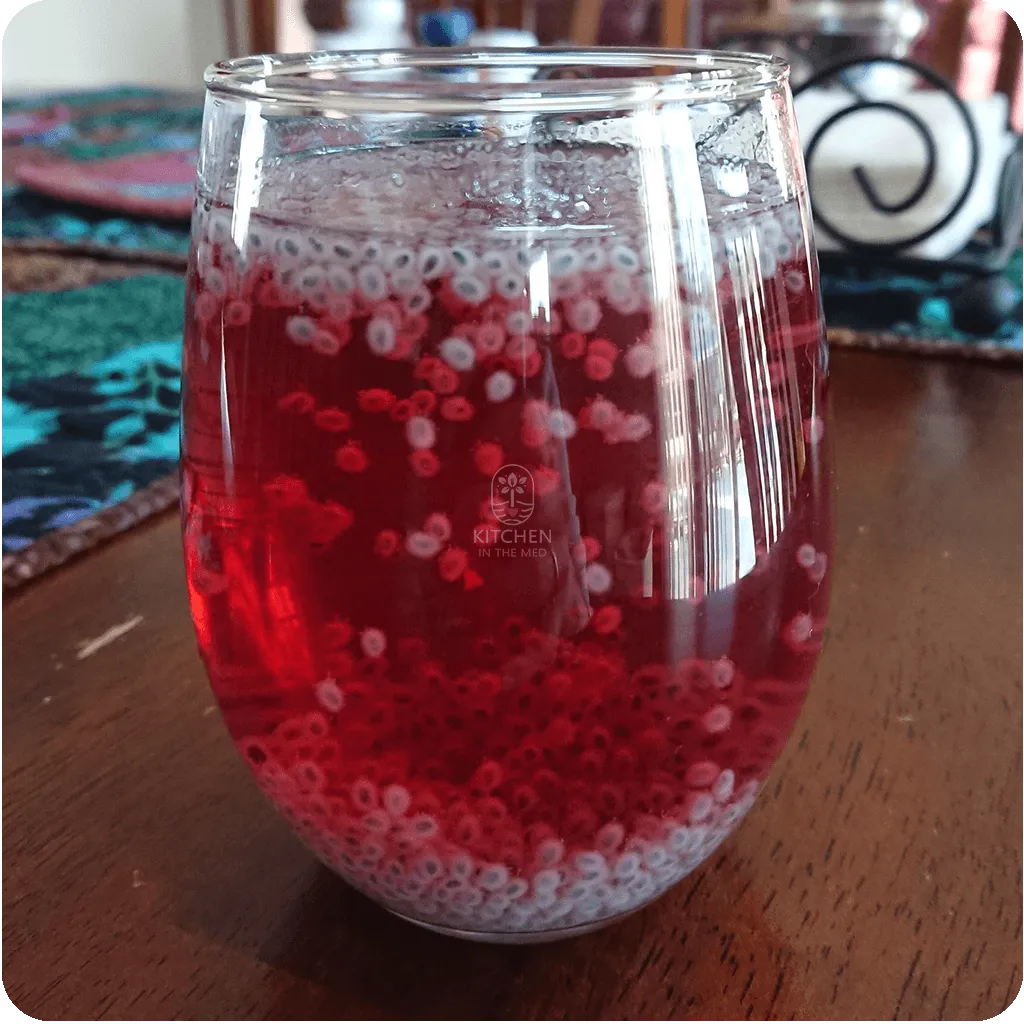
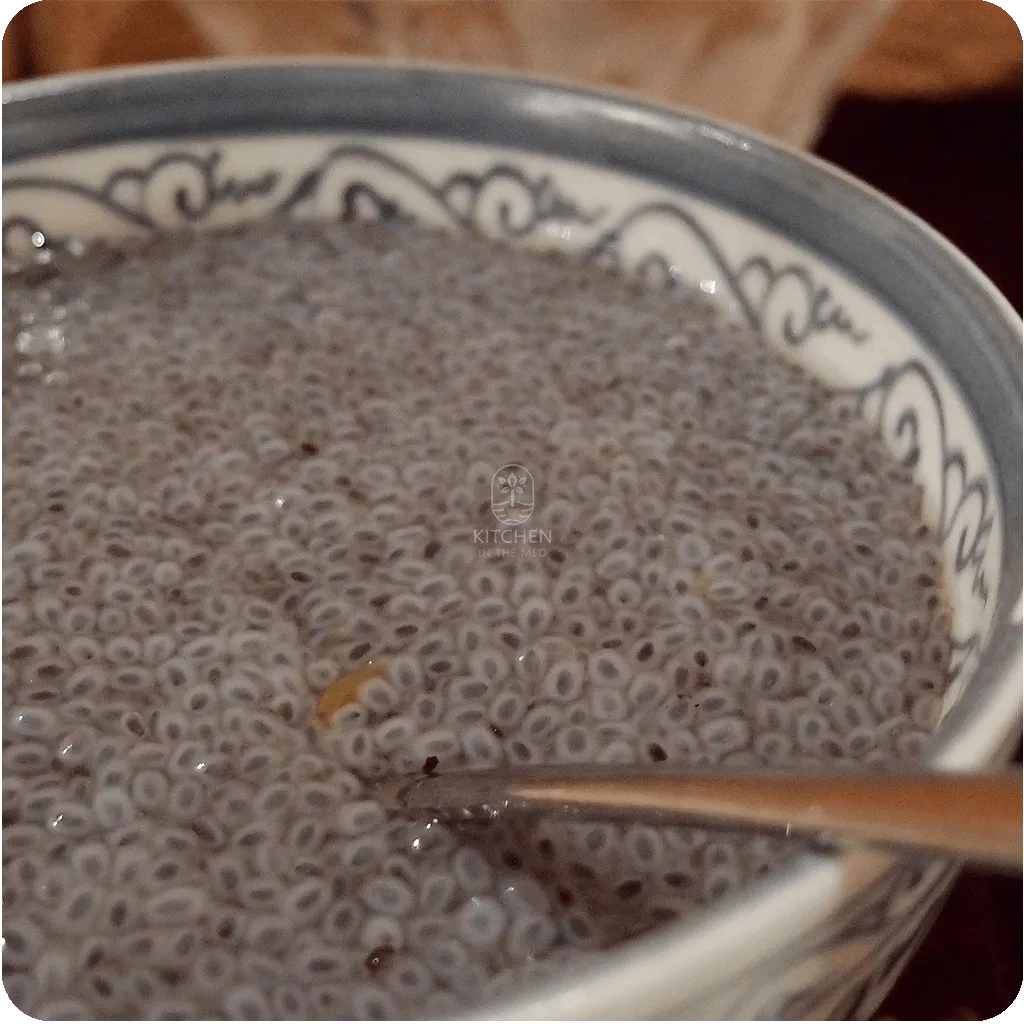
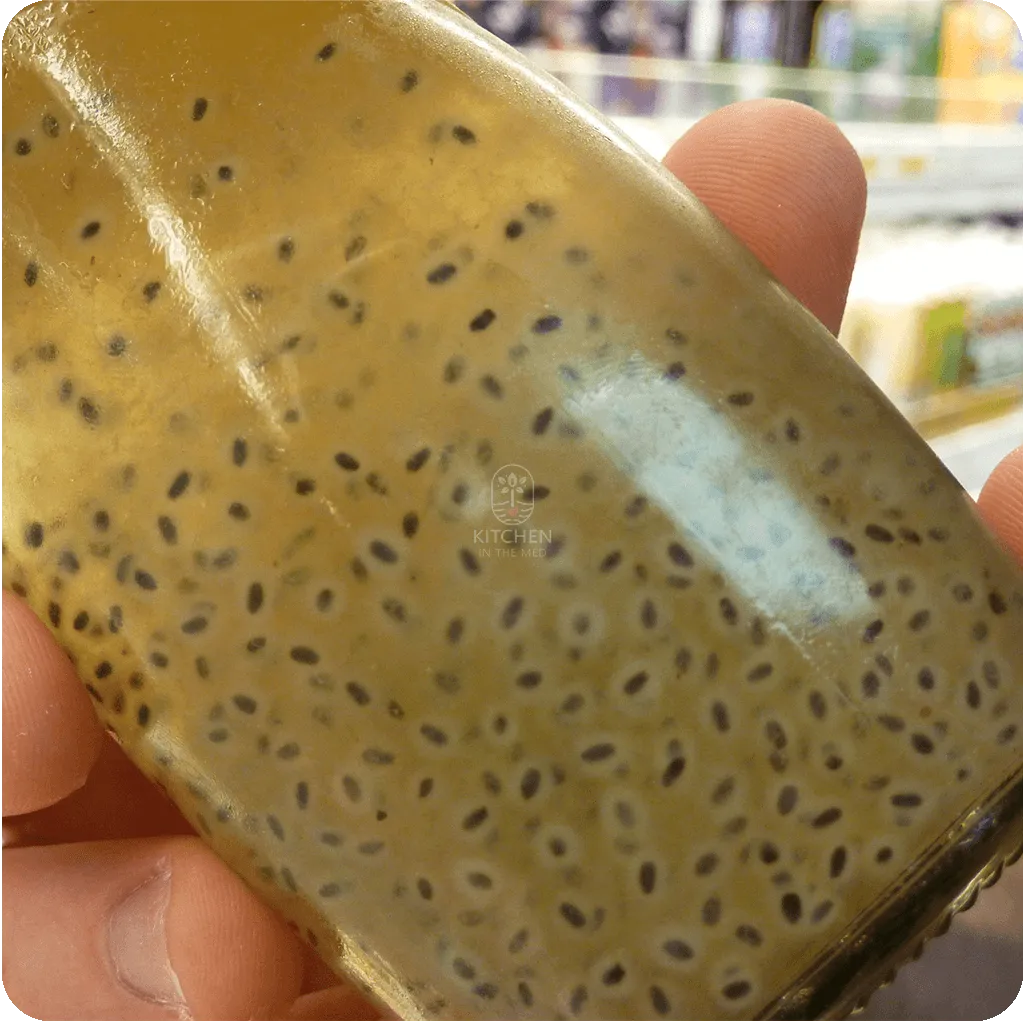
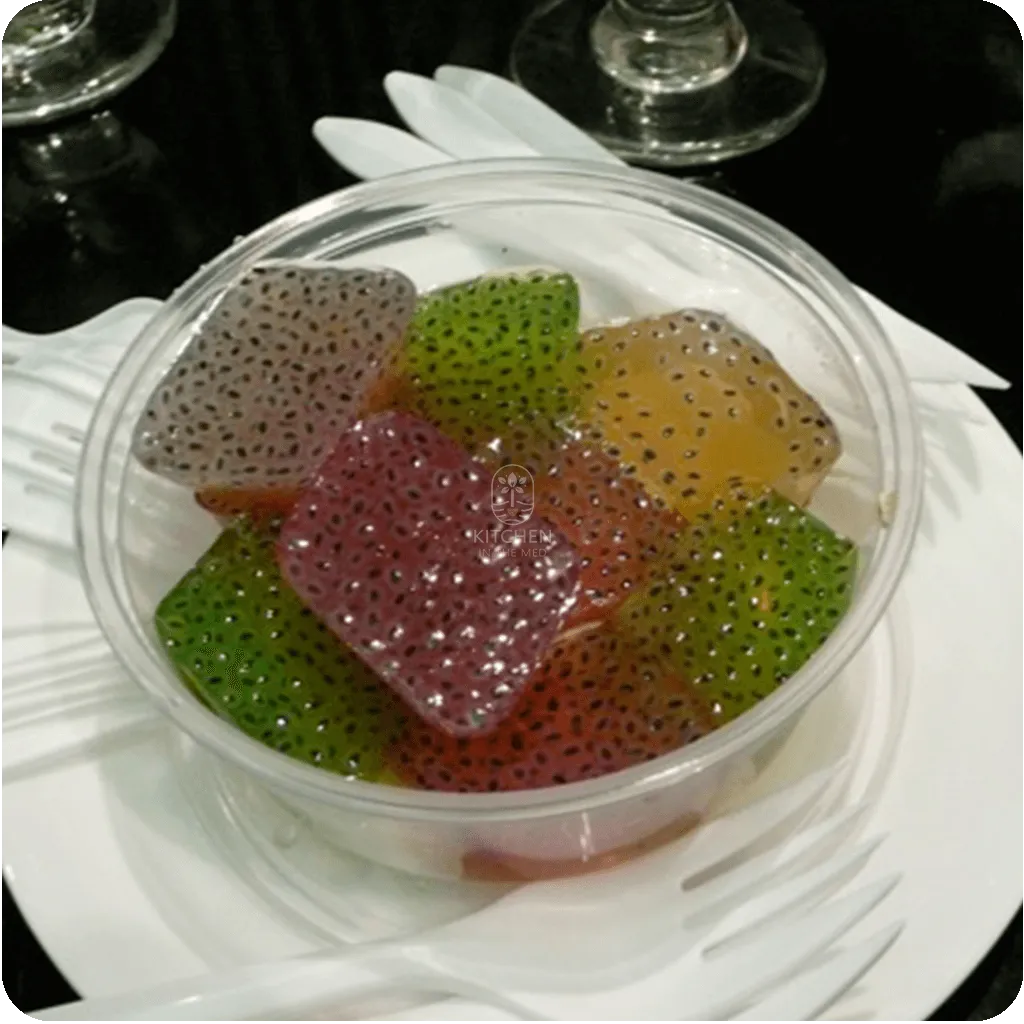
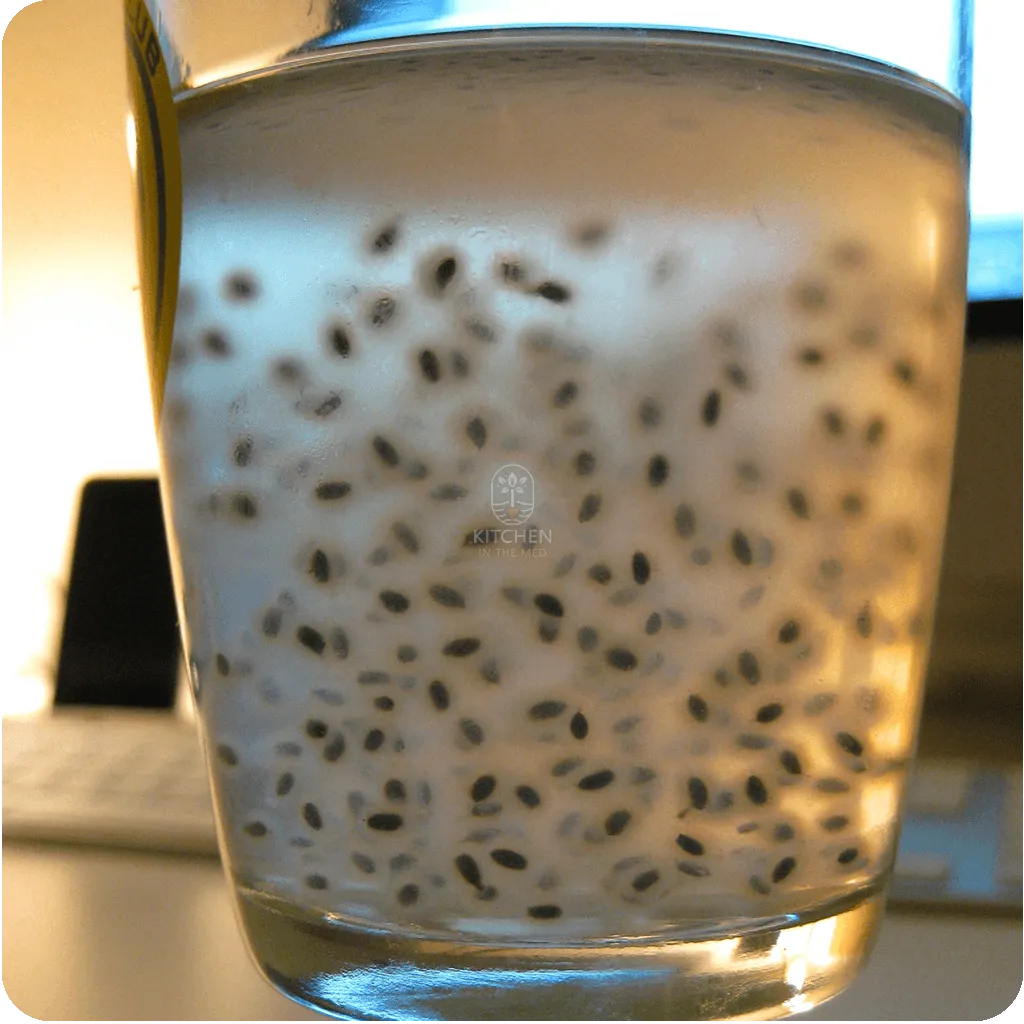
Basil and Chia seed Comparison
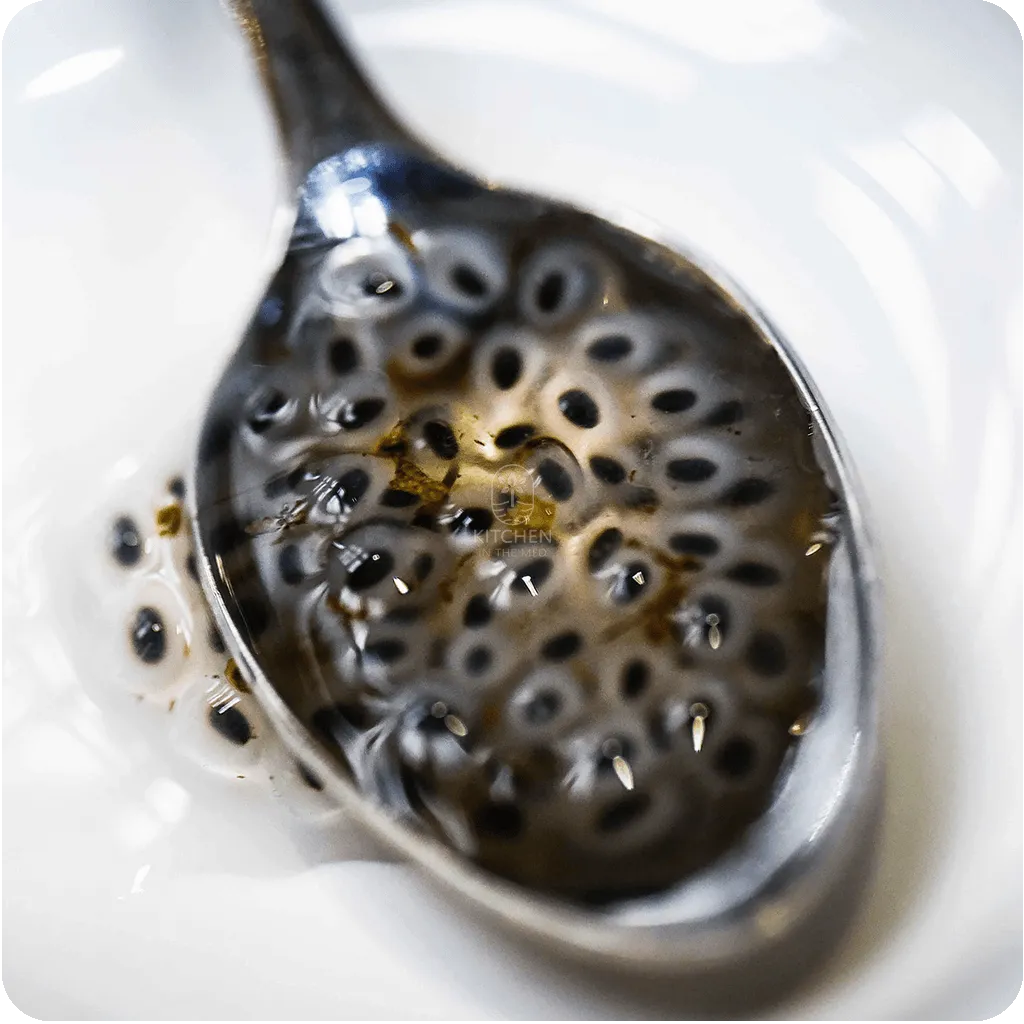
Soaked Basil Seeds by Rod Waddington
Basil seeds are more common in traditional Asian cuisines, while chia seeds have gained popularity in Western diets.
Origin and Appearance
- Basil Seeds: Also known as Sabja or Tukmaria seeds, they come from the Ocimum basilicum plant. These tiny, black seeds are oval-shaped and become gelatinous if you soak them in water.
- Chia Seeds are small and oval and can be black, white, or brown.
Nutritional Profile Comparison
- Basil Seeds are rich in fiber content. They also contain essential minerals that support bone health and metabolic functions. Additionally, they offer omega-3 fatty acids, which are good for heart health.
- Chia Seeds: High in fiber and omega-3 fatty acids, chia seeds support heart health and digestion. They are also a helpful protein, antioxidant, calcium, and phosphorus source.
Health Benefits
- Basil Seeds are high in fiber and excellent for digestion and weight management. Their omega-3 fatty acids support cardiovascular health. They also have antioxidant properties, helping to combat oxidative stress.
- Chia Seeds have omega-3 fatty acids that are known for promoting heart health. They provide sustained energy and have anti-inflammatory properties. Their high fiber content aids in digestion and weight management.
Culinary Uses
- Basil Seeds are useful in smoothies and lemonades. They develop a gelatinous coating, after you soak them, making them right for thickening recipes.
- Chia Seeds: Add them to smoothies, yogurts, and baked goods. Due to their gel-forming ability, chia seeds are popular in making puddings and as an egg substitute in vegan baking.
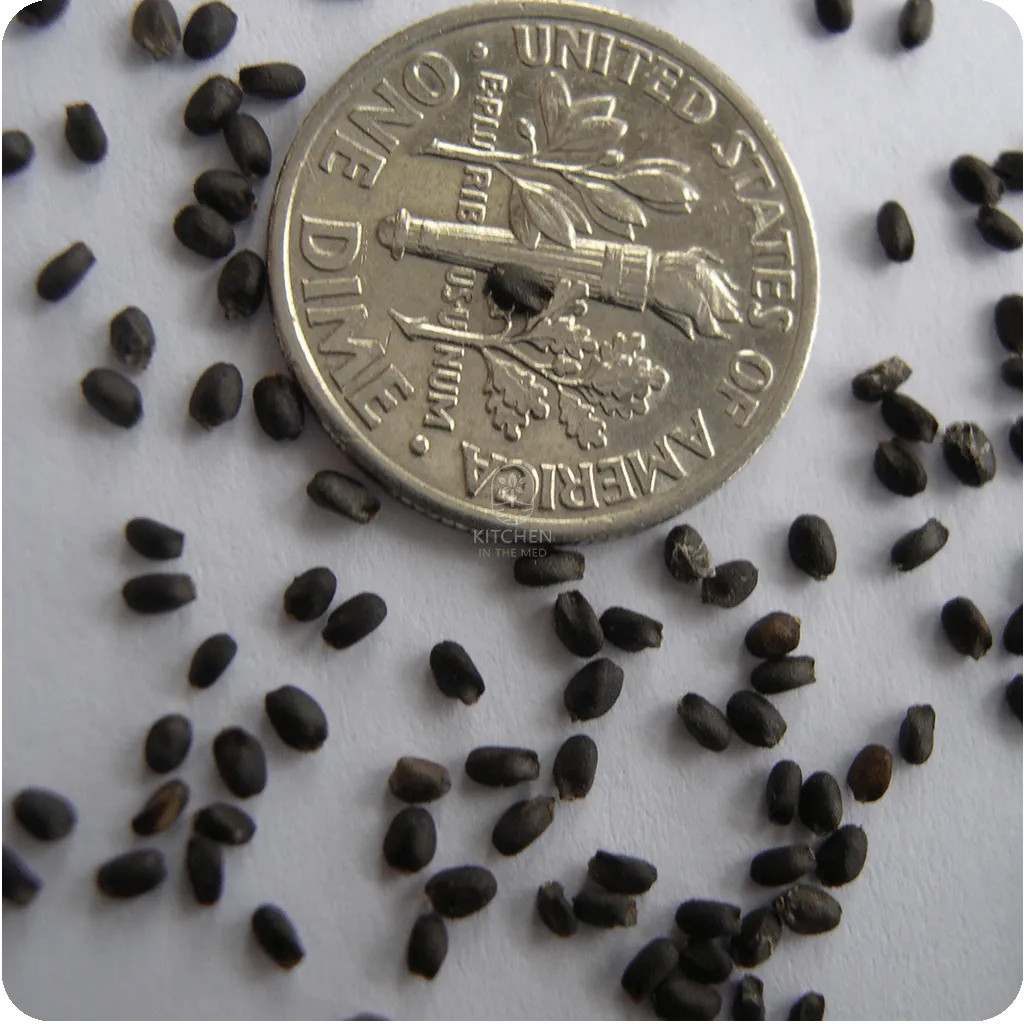
Basil Seeds
Sources I used in this Article
MDPI Multidisciplinary Digital Publishing Institute
Journal of Pharmaceutical Research International
Comparative Analysis of Antioxidant and Hemagglutination Properties of Chia and Basil Seeds
Sciendo.com Folia Horticulturae,Volume 32 (2020): Issue 1 (June 2020)
Basil seeds as a source of antioxidants affected by fortification with selenium
Pakistan Journal of Agricultural Research
Nutritional Assessment of Basil Seed and its Utilization in Development of Value Added Beverage
Nutrition Today
Comparative Analysis of Antioxidant and Hemagglutination Properties of Chia and Basil Seeds
Basil seeds as a source of antioxidants affected by fortification with selenium
Nutritional Assessment of Basil Seed and its Utilization in Development of Value Added Beverage
Basil: A Brief Summary of Potential Health Benefits
Nutrition Face-Off: Basil Seeds vs. Chia Seeds Compared
Share this article